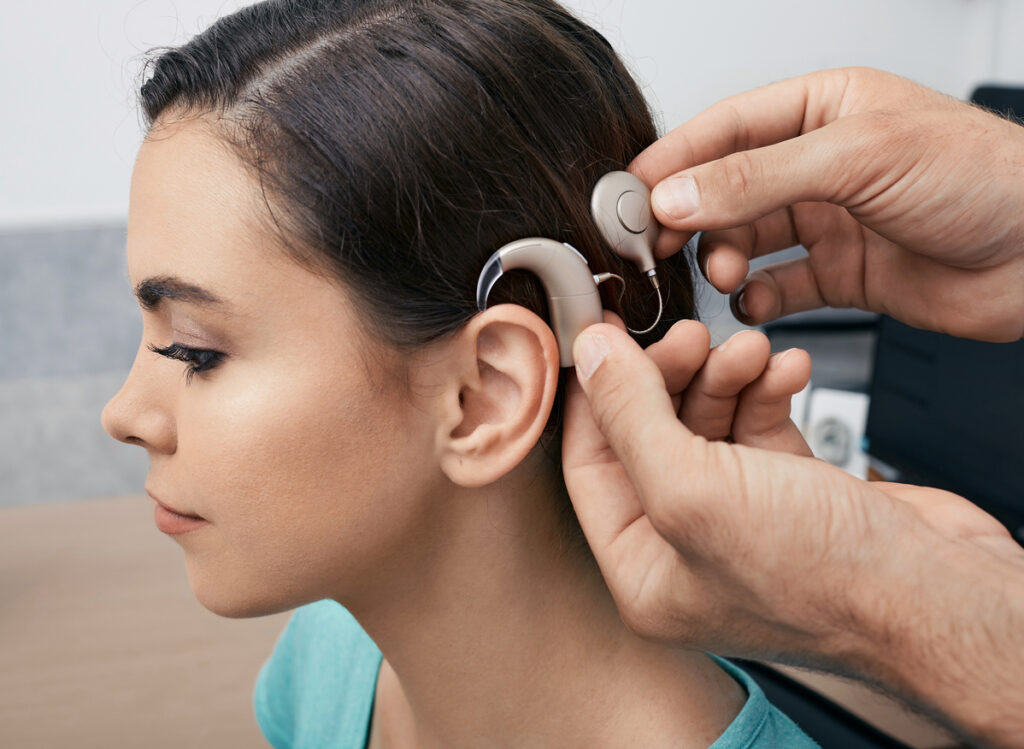Washington University School of Medicine experts have long been at the forefront of improving hearing for individuals with single-sided deafness (SSD).
Now, with improvements in cochlear implant technology and recent FDA approvals for cochlear implants for those with single-sided deafness, Washington University’s Department of Otolaryngology is poised to treat even more patients with SSD while continuing research on how best to optimize use of cochlear implants for these individuals.
Single-sided deafness refers to unilateral hearing loss where hearing loss in one ear is severe or profound. Individuals with SSD often struggle to identify where sounds are coming from, have difficulty engaging in conversation in noisy settings, and experience listening fatigue. While SSD has historically been difficult to treat, Washington University researchers and clinicians have made and continue to make significant contributions to the field.
Cochlear implants have been shown to help patients with single-sided deafness
- Improve hearing
- Reduce tinnitus
- Increase speech understanding
- Identify where sounds come from
- Improve quality of life
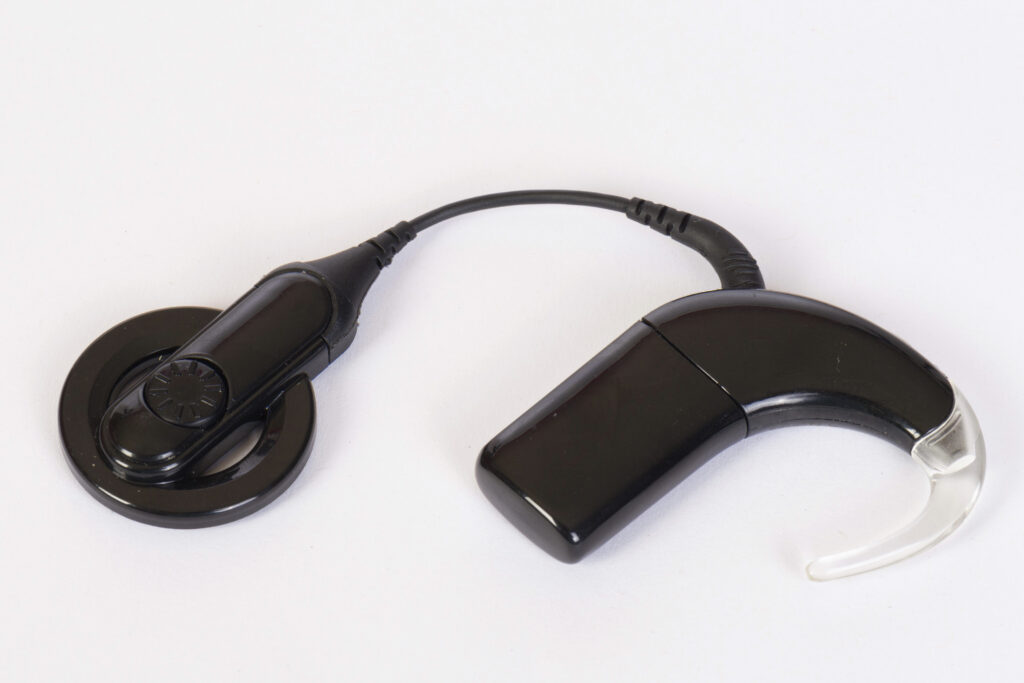
Washington University experts have been offering cochlear implants to SSD patients for 13 years. Previously, cochlear implants were used primarily for individuals with severe or profound hearing loss in both ears. Drawing on positive outcomes from clinical trials, Washington University determined a high satisfaction rate for cochlear implants in individuals experiencing sudden onset single sided deafness and continues to study how best to optimize hearing for these individuals. With FDA approval for MED-EL, and now Cochlear Limited implants, WashU has expanded its offerings to individuals with SSD, improving the quality of life for so many.
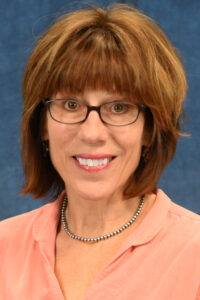
Jill Firszt, PhD, director of WashU’s Cochlear Implant Program, oversees clinical trials investigating the efficacy and optimization of cochlear implantation in individuals, both adults and children, with single-sided deafness. As outcomes for individuals with cochlear implants can vary significantly, Firszt is conducting research to better understand the variation in speech recognition outcomes. The Firszt Lab is also examining ways in which audiologists can optimize the programming of cochlear implants for individual patients. This research will pave the way for individuals with SSD to effectively utilize cochlear implants in quiet and noisy environments and potentially improve localization.
Learn more about the Firszt Lab’s groundbreaking work and clinical trials here.
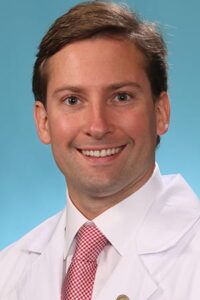
Cameron Wick, MD, who specializes in otology and neurotology, is also conducting research on cochlear implant outcomes. One project is focused on a new cochlear implant nerve monitoring system for acoustic neuromas, which would allow patients with SSD and acoustic neuromas to benefit from cochlear implants by keeping the nerve intact during resection.
Optimizing treatment options for patients with single-sided deafness
Beyond leading SSD research, Washington University’s Otolaryngology Department is a global leader in treating individuals with single-sided deafness.
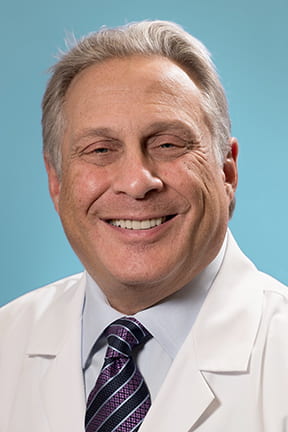
Jacques Herzog, MD, chief of the Washington University Otology/Neurotology team, is a nationally recognized cochlear implant surgeon. Herzog began treating individuals with single-sided deafness using cochlear implants in 2010. He found that cochlear implants could improve communication abilities for individuals with severe single-sided hearing loss but also, in some instances, suppress co-occurring tinnitus. He notes that patients who experience the rapid onset of SSD benefit most from cochlear implants. While initial improvements in hearing is gradual for individuals with SSD who receive cochlear implants as compared with patients experiencing hearing loss on both sides, it continues to improve over the course of the following months and year.
Herzog does about 130 cochlear implants a year; 20-25 of those implants are for individuals with SSD. With the recent FDA approval of Cochlear Limited’s cochlear implant for SSD, Dr. Herzog envisions more patients benefitting from the cochlear technology. He notes that patients with SSD can struggle in the workplace and socially.
“Turning hearing back on opens doors for these patients,” says Herzog.
Learn more about cochlear implants here.
Read more Otolaryngology news
Research identifies novel approach to control cancer
